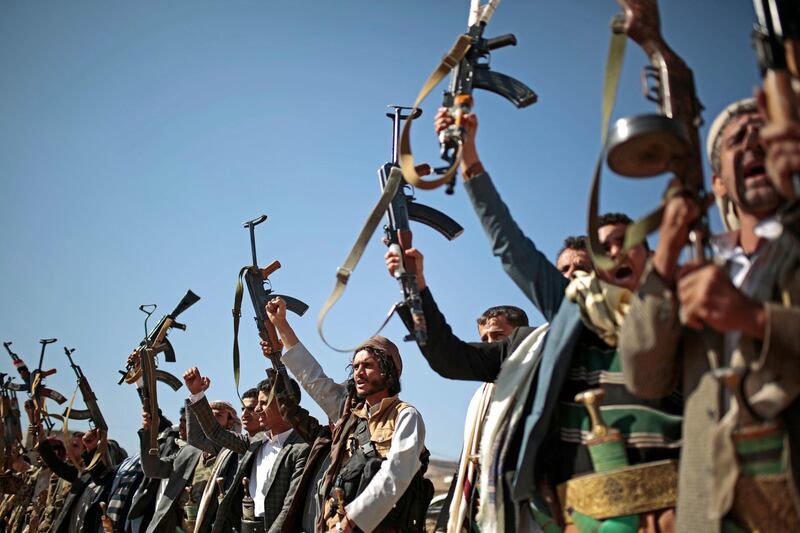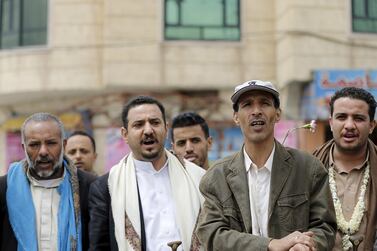Yemen’s government accused the Houthi group on Wednesday of committing acts of genocide against civilians in Hajjah province.
Members of the Hajoor tribe have been fighting the Iran-backed rebels in the mountain areas of Kushar district, in the northern province, for more than a month.
“The Iranian-backed rebels are using heavy weapons such as ballistic missiles to target villages, killing at least 100 people and displacing more than 400 civilians,” Muammar Al Eryani, Yemen’s Information Minister, said on Wednesday.
Houthi crimes against innocent civilians must be accounted for, the minister said in the Jordanian capital Amman.
Mr Al Eryani called for an international investigation into what he called “Houthi genocide against the Hajoor tribe”.
Houthi rebels imposed their control over Hajjah's northern districts after a local tribe took up arms against them.
“The rebels have prevented drinking water and medicine from entering the province, causing a real humanitarian disaster,” Mr Al Eryani said.
The tribesmen, in a deal with the rebels, had so far remained neutral in the four-year war.
But the deal collapsed when the Houthis tried to use the district to transfer weapons to a coastal area where they have been fighting against the Arab-led Coalition.
The Yemeni minister called on the international community to intervene and open an investigation into the crimes allegedly committed by the rebels.
“They are carrying out a genocide against the people of Hajjah and this must end,” Mr Al Eryani said.
The number of displaced civilians in Hajja has doubled over the last six months, the UN says.
Hajjah is among the provinces with the highest humanitarian needs in the country.
The findings of the Integrated Food Security Phase Classification released in December indicate that more than a million people, out of a total population of 2.5 million, are in Phase 3 – living in crisis.
“It is outrageous that innocent civilians continue to die needlessly in a conflict that should, and can be solved,” said Lise Grande, the UN humanitarian co-ordinator in Yemen.
Thousands more civilians are thought to be trapped in the fighting, unable to flee to safety or get to areas where they can have access to food, water, medical treatment and other life-saving aid, the UN said.
Large numbers of people are being displaced in Hajjah, many of them several times over the past four years, said Nigel Tricks, NRC's East Africa and Yemen director.
“Thousands more remain trapped by front lines in Kushar and areas bordering Saada. Civilians must be able to flee to safety and get to help,” Mr Tricks said.
Yemen's war has killed thousands of civilians and left millions on the brink of famine and starvation.







